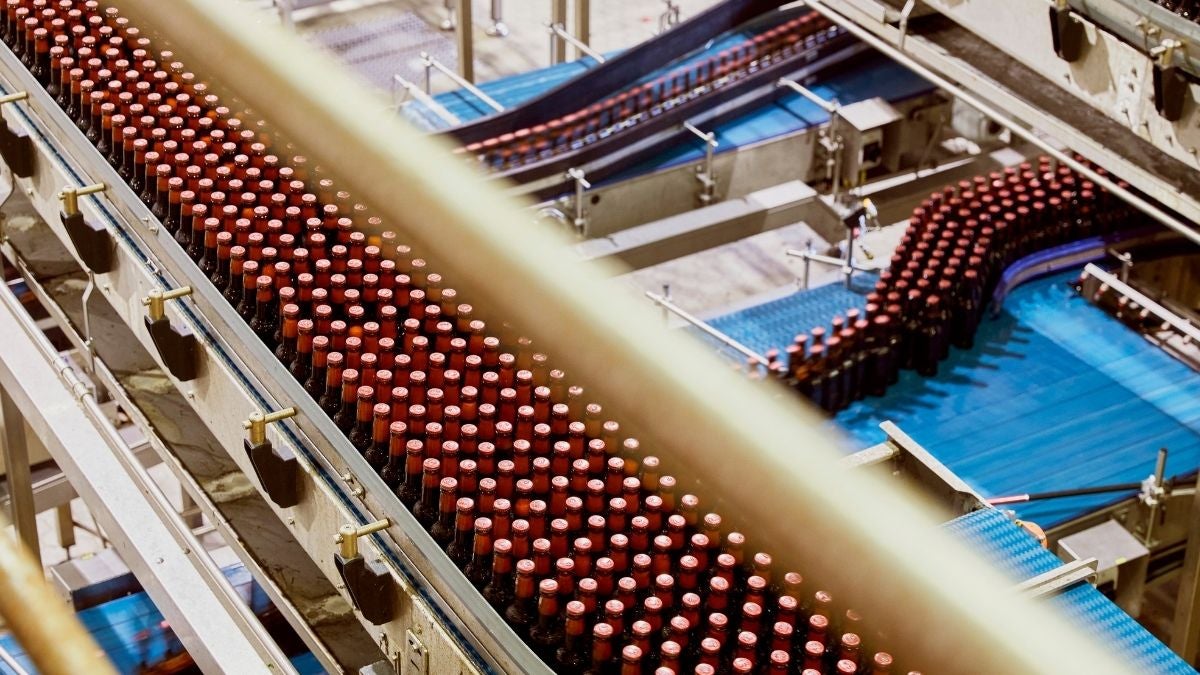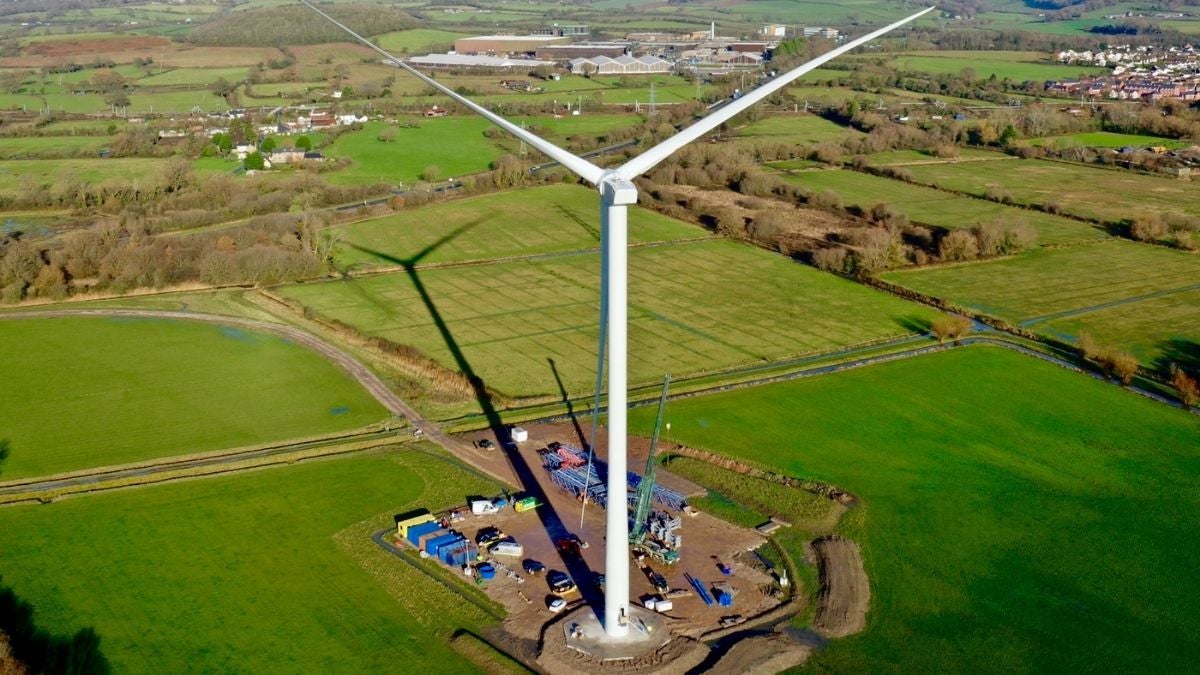
While pub-goers may put little thought into the carbon emissions of their pint when they go for an after-work drink, it is an issue that the world’s largest brewer, AB InBev, is acutely aware of.
Known among British drinkers for its Budweiser, Stella Artois and Corona lager brands, the company produces one in every four beers sold worldwide.
In 2017, its then CEO Carlos Brito (who stepped down in July) described climate change as “the most pressing issue confronting our planet”. Since then, AB InBev has reduced its total emissions from 32.35 million metric tons of CO2 to 28.37 million - a drop of almost a fifth (18.61%). But it wants to do much more.
The person tasked with cutting the company’s environmental impact in the UK, Ireland and Spain is head of procurement and sustainability Mauricio Coindreau. His aim is to make his part of the business a “beacon” that others can follow.
“We want to be the most sustainable brewery in the UK,” he tells Raconteur.
Helping the UK lead the way on sustainability
Coindreau joined AB InBev in 2019, a year after the company first announced its 2025 sustainability goals, which include upskilling and financially empowering its farmers, improving the sustainability of its water usage, ensuring all of its packaging is either recyclable or returnable and switching to 100% renewable energy sources.
The UK arm of the business, Budweiser Brewing Group, has already reached its renewable energy targets. Since February, all its beers are brewed with electricity from renewable sources, with the brewer now generating more electricity than it uses. To highlight this point, the company donated 5 million kWh of surplus energy from its wind turbine and two solar farms back to the grid to mark the G7 Summit in Cornwall earlier this year.

Despite its progress on the renewable energy front, the Budweiser brewer is only targeting a 25% reduction in carbon emissions across all ‘scopes’. Scopes refer to the emissions a business is directly and indirectly responsible for. Scope one is direct emissions, scope two is indirect emissions - for example those generated by heating a building - and scope three is emissions from its supply chain or customers.
Coindreau says: “We want to be carbon positive but we also need to be factual and data driven in the goals that we’re setting.”
He claims that 90% of the business’s emissions come from its supply chain as part of its scope three emissions, which makes CO2 reduction challenging. He adds: “Since we set this goal for 2025, we’ve decreased our scope one and two emissions by 25%, which are the parts of our operations that we’re directly in control of. But when accounting for scope three too we’re at 11%, so we still have some way to go.”
Currently, packaging accounts for 36% of the business’s emissions, while the cooling of its beers in bars and retail stores is responsible for around a fifth. Coindreau adds: “There are challenges throughout the whole value chain, that’s why Budweiser Brewing Group ties sustainability with procurement. We know that 90% of our emissions come from our supply chain, which makes it important to have those conversations with our suppliers.”
In the UK alone, the Budweiser Brewing Group deals with more than 3,000 suppliers. This makes tracking their contribution to the company’s emissions difficult. However, Coindreau has noticed a shift in attitude among suppliers about emissions reporting over the past two years.
“It’s incredible how responsive our suppliers are. Often, we don’t even have to ask for the information any more, they tell us why they’re the most sustainable supplier up front,” he says.
He believes that this change is a result of pressure from consumers, other business partners and external emphasis on the need to take action, such as COP26 and the Intergovernmental Panel on Climate Change.
Coindreau claims that AB InBev tries to work with suppliers to help them reach the sustainability goals it sets, although he admits sometimes a stick rather than a carrot is needed. “We sometimes have penalties or restrictions on suppliers if they don’t reach certain sustainability goals. We try to enforce it in this way but working together as a partner is best.”
Focusing on packaging sustainability
Coindreau, who also co-founded reusable flask company Ocean Bottle, has placed the introduction of returnable bottles high on his to-do list. “By 2025 we want 100% of our packaging to be either returnable or from a majority of recycled content,” he says.
Despite offering returnable bottles to customers in Belgium, Germany, Brazil and Mexico, logistics and government implementation schemes have slowed progress in the UK. Coindreau says: “I’m pushing to introduce returnable bottles in the UK because returnable glass is actually the most sustainable packaging available outside of kegs. If you compare a one-way glass container to returnable glass, it creates almost five times more emissions.”
He adds: “This is not something that we just want to do for our business, this is a change we want to make for the whole country.” If it’s achieved, it would make a significant dent in the businesses emissions targets, with glass bottles accounting for roughly 50% of all its packaging.
Other initiatives include a new ultra-low carbon aluminium can and plans to trial a carbon capture system to take CO2 from the air to reuse in the carbonation process.
The brewer has stiff competition in its bid to be the most sustainable beer brand in the country. Brewdog has been particularly vocal about its sustainable credentials. The Scottish beer company claims to be the world’s only carbon negative brewer after making a commitment to offset double the amount of carbon it emits as a business and from its supply chain.
Smaller craft beer brands are also using creative methods to become more sustainable including London brewer Toast, which uses leftover bread in its manufacturing process to save it from going to landfill, and Small Beer Co., which has cut down water usage to 1.5 pints per beer.
The business case for tackling carbon emissions
As a company that uses 150 billion litres of water globally per year and relies on the farming of barley and hops for its product, climate change also presents a major threat to AB InBev’s bottom line. That makes tackling emissions important not only for the planet but also for its business.
A study in Nature Plant estimated extreme heat and droughts caused by climate change could lead to global barley yields decreasing by up to 17% within this century - causing beer prices to double. Similarly, in its own 2020 CDP report AB InBev states that a rise in water scarcity over the next 10 years could put “billions of dollars at risk”.
“Climate change is an overall threat to everyone but access to water is one of the things that worries us the most,” Coindreau says. “Normally a brewery uses around five hectoliters of water to brew one hectoliter of beer. In some of our African breweries, we’ve brought it down to two. That’s something that would have been considered impossible a few years ago; it’s about always trying to improve and become more efficient.”
Despite progress on its sustainability goals, with the threat of climate crisis looming, there is no intention to let up. Coindreau says: “We’re proud of what we’ve done so far, but we aren’t finished yet.”

While pub-goers may put little thought into the carbon emissions of their pint when they go for an after-work drink, it is an issue that the world’s largest brewer, AB InBev, is acutely aware of.
Known among British drinkers for its Budweiser, Stella Artois and Corona lager brands, the company produces one in every four beers sold worldwide.
In 2017, its then CEO Carlos Brito (who stepped down in July) described climate change as “the most pressing issue confronting our planet”. Since then, AB InBev has reduced its total emissions from 32.35 million metric tons of CO2 to 28.37 million - a drop of almost a fifth (18.61%). But it wants to do much more.
